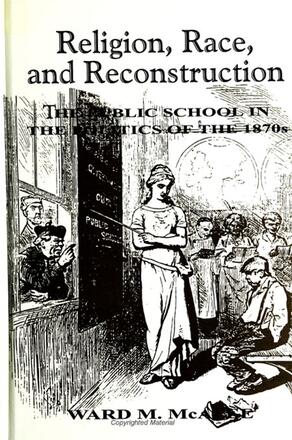
Religion, Race, and Reconstruction
The Public School in the Politics of the 1870s
Alternative formats available from:
Simultaneously resurrects a lost dimension of a most important segment of American history and illuminates America's present and future by showing the role religious issues played in Reconstruction during the 1870s.
Description
Religion, Race, and Reconstruction simultaneously resurrects a lost dimension of a most important segment of American history and illuminates America's present and future by showing the role religious issues played in Reconstruction during the 1870s.
Ward M. McAfee is Professor of History at California State University, San Bernardino. He has written several books, including A History of the World's Great Religions.
Reviews
"This nineteenth-century study is highly instructive about a cluster of today's issues: the role of religion and religious beliefs in public education; interactions between religion and national self-understanding; connections between implicit racism and political success; the fairness of school vouchers; and tensions between multiculturalism and the common American culture. McAfee goes to the heart of these and other complex historical debates and lifts out their subtle but significant meanings. " — William D. Dean, Iliff School of Theology, author of American Religious Empiricism
"This is a masterfully written book with virtually flawless research, synthesis, and argumentation. It presents a fresh, iconoclastic interpretation of Reconstruction, Republicanism, and the place of educational reform in the 1870s that leaves most of us flat-footed. McAfee sees connections among issues, movements, and people that all of us laboring in this field have overlooked. Best of all, this is an interpretation that works. The author is thorough, modest, but always persuasive. I began reading the book skeptical of the claims the author promotes; by the end, I was fully convinced of nearly all of them. " — Ronald E. Butchart, coeditor of Classroom Discipline in American Schools: Problems and Possibilities for Democratic Education